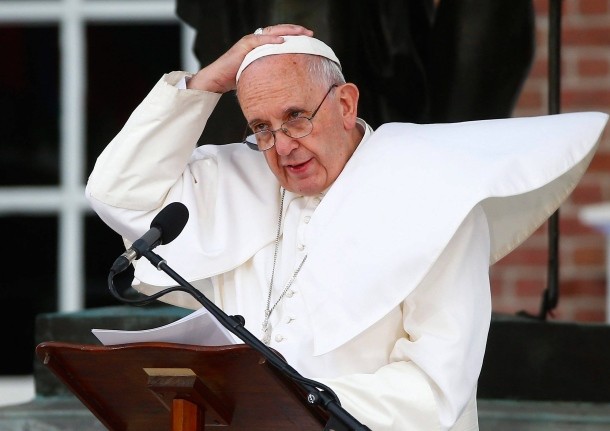
While it was Pope Francis’ 17 May 2016 interview with the French journal La Croix that led to a strong critique of the pope as a “relativizer” by German journalist Dr. Alexander Kissler, it was Francis’ recent comments about the invalidity of a vast majority of Catholic marriages that provoked another well-known German journalist – Christian Geyer – to write his own indignant rebuke.
Geyer – himself a father of four children – is the editor of the culture section of the prestigious, preeminent and well-honored German daily newspaper Frankfurter Allgemeine Zeitung. On 23 June, he published in that section an article entitled “We Childish People.” With reference to Pope Francis’ 16 June remarks on marriage, Geyer says that the pope now claims that the majority of Christian marriages are “’invalid’ – respectively ‘null’ – and thus, in the logic of Church Law, annullable.” The journalist continues:
Yes, he [Pope Francis] explains, that is so, because today, one lives after all in a “culture of the provisional,” and in such a culture, the people [Menschenkinder – little immature children] do not know what they say when they promise each other to remain together until death separates them.
Geyer concludes with the comment that, then, the pope must regard his contemporaries as “a mere appendage to their culture, and in such a way that in the 21st century, intentional actions merely reach as far as a man’s hand can reach to his own mouth.” The German journalist sees here that the pope does not give credit to humans to be able to understand even what they promise to each other and that he thus pre-emptively holds them incapable of such a decision. Geyer therefore asks:
Did we understand correctly? Is someone here performing an act of rendering on a large scale people incapable to make a decision (independently of whether the video speaks of a “great majority” or whether in the corrected Vatican transcript itself, there is merely talk of a “part” of the Christian marriages)? […] The tenor is: even if these childish people would like to – they can’t. This is [condescending] papal paternalism at its best – which literally leaves one speechless.
Greyer continues, by asking whether the pope intends here to establish a “new anthropological law” according to the motto: “people nowadays just don’t have it together.” He also adds the question whether this aspect will now be added to the theology in the sense of “a reality of the provisional,” which then becomes “the measure for the norm (implying: let us not bother further the people with our impositions – they anyway only think in the manner of the provisional, and whoever among them binds himself for ever, does not know anyway what he is doing).”
These questions, however, cannot be answered, says Geyer, because of the “intentional unclarity of his [Pope Francis’] words in general – a lack of precision that has become in the meantime the structural foundation for this Argentinian pontificate.” (These words remind us of Professor Jude Dougherty’s recent words about the pope’s “deliberate ambiguities.”)
Geryer sees in Pope Francis’ words an inversion at work that will have grave consequences when deeply considered. Geyer says:
This papal determination about the relation between culture and Faith which shines through here is, however, revealing. Here, the Biblical Parable of the Leaven experiences an inversion: accordingly, culture seems to be now the salt of the earth which penetrates the Leaven of the Faith – instead of the reverse. In this reversion [and inversion] of perspectives lies the moment of surprise of all of the public appearances of Pope Francis.
In this context, Geyer mentions also the highlighting of the pastoral aspect which has been increased by Pope Francis with reference to a further “merciful development of tradition.” But, here the journalist objects:
But, is this so, indeed? We adulterers, we sinful generation, feel that we are being fooled. We reject that – with the help a of a diagnosis at a distance – we are being declared not to be responsible for our own actions [and thus to be infantilized]. If we are not able to keep our promises, then we want to be able to say so: “I have not been loyal to my promise, here not and there not.” But we do not want to be told spontaneously by a pope [Geyer reveals that friend and foe call Pope Francis now also “Spontifex”] that we have not been capable of making such a promise as we performed it (since, after all, we are only part of the culturally provisional).
Christian Geyer concludes his passionate and indignant analysis of Pope Francis’ condescending and infantilizing words with the question:
“Does the pope know what he is saying?”


